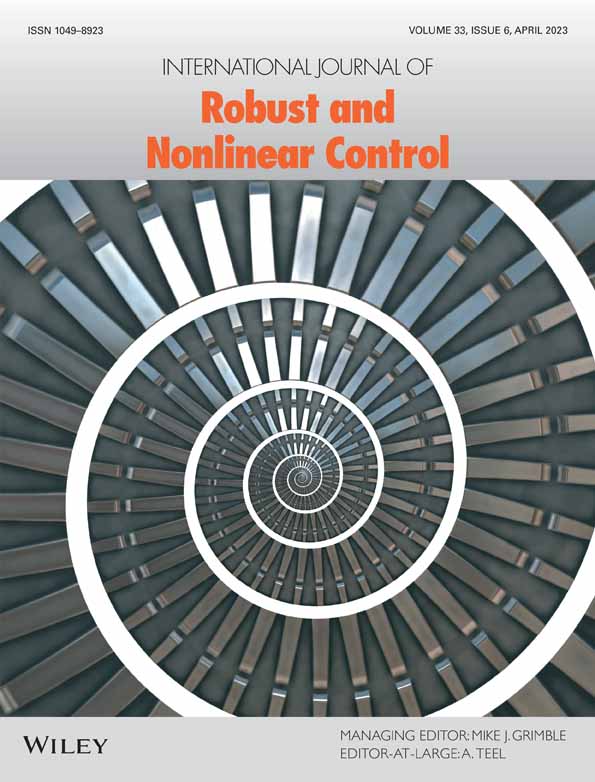Adaptive sliding mode control of Markov jump systems with completely unknown mode information
Funding information: China Postdoctoral Science Foundation, Grant/Award Number: 2021M692369; Italian Ministry of Education, National Natural Science Foundation of China, Grant/Award Number: 62003231; Natural Science Foundation of Jiangsu Province, Grant/Award Number: BK20200989; NCF for colleges and universities in Jiangsu Province, Grant/Award Number: 20KJB120005
Abstract
This paper aims to investigate the problem of adaptive sliding mode control for Markov jump systems with deficient transition probability. Different from the existing literature, we propose a novel method to design a mode-dependent sliding mode controller when the mode information is completely unknown, while the controller gain parameters can be designed by solving feasible conditions. Firstly, by designing an integral-type sliding surface, on which an ideal sliding mode dynamics is obtained. Then, for different types of mode transition information, a set of feasible easy-checking stochastic stability criteria are proposed for the sliding mode dynamics in terms of strict linear matrix inequalities. Further, relying on the parameters obtained from the stability criteria, an adaptive sliding mode controller is successfully designed with respect to different types of system mode transition information. Finally, a numerical example is provided to illustrate the advantage of the developed strategy.
CONFLICT OF INTEREST
The authors declare no potential conflict of interests.
Open Research
DATA AVAILABILITY STATEMENT
The data that support the findings of this study are available from the corresponding author upon reasonable request. Data sharing not applicable to this article as no datasets were generated or analyzed during the current study.




